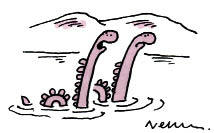Readers familiar with Idomeneo might have shared my pleasure (and bemusement) at a performance of Mozart’s early opera at the Coliseum in London last week. The English National Opera production, which staged most of the action in what appeared to be a top-quality modern hotel, was ludicrous (I found the waiters distracting, but then I often do), but no more ludicrous than any other imaginable 21st-century staging of an 18th-century account of an ancient Greek tale.
No, what perplexed me was the part played in the narrative by the gods. At one point near the end we literally and explicitly encounter a deus ex machina when the voice of Zeus, offstage, cuts a Gordian knot and briskly resolves the plot; but the implicit intervention (or feared intervention) of the gods, especially the vengeful Poseidon, is what carries the storyline throughout.
I will not detain you with the plot, which I lost in the first five minutes, then fitfully regained. The point is that in the minds of the principal actors the gods were real, potent, and liable at any moment to barge in. Unless you believed that — or at least believed that they believed that — the whole thing was pointless and you would be left with only Mozart’s music: a perfectly tolerable fate.
But did they believe it? Did Mozart’s contemporary audiences, presumably Christian, believe it? Did they believe that the men and women they saw on stage, the ancients themselves, had actually believed it? We pass here through three removes of belief: our own belief in the belief of Mozart’s intended audience in the belief of the characters portrayed, in the existence of Zeus, Poseidon, etc. At each stage, starting from the ancients themselves, the level of belief grows weaker, so that in the end we British opera-goers in the summer of 2010 are seeing Zeus through three glasses, and very darkly indeed. How, though, did the Greeks see him?
And I fell to wondering whether and how we can ever find out. Did the ancients really believe in what we now call their divine mythology? Did Mozart’s contemporaries really believe in their Christian theology? Do those who call themselves believers today? And what do we mean by ‘really believe’?
I first began to reflect on the gap (or otherwise) between professed and real belief when, to my great surprise in Margate, my paternal grandmother (on the occasion of my having made a comforting remark to the frail old lady about the afterlife) pulled me up sharply: ‘You don’t think I’ve ever believed in any of that, do you?’ A conventional and deeply conservative woman, she was born in 1888, and her mother was a church organist in Kent. I was only slightly less surprised, a few years later, when my maternal grandfather, an upright, retired RAF officer, expressed reluctance even to enter a church for his own grandson’s wedding, telling me that two of life’s greatest evils were vicars and insurance salesmen: both in the same business. My paternal grandfather was an enthusiastic Freemason whom I never saw in a church in my life; and I don’t believe my maternal grandmother had a religious thought in her head.
So here are four 19th-century-born English people, living conventional lives and expressing largely conventional attitudes. They would all be assumed by any future historian to have been Christians, and never made any sort of public statement, or placed upon any sort of record, any evidence to the contrary. Three of the four would undoubtedly have described themselves as Christians.
Was it thus with the ancients? I asked a friend with better knowledge than I of the Greeks and Romans. He said there’s evidence that, for instance, the Greeks of the 4th century bc entertained quite lively beliefs in their divinities, but the livelier of these seemed to be found among the uneducated and peasantry. By the 1st century bc, he thought, people who considered themselves sophisticated could be quite scathing about the divinities, seeing such belief as ignorance. Educated Romans, likewise, he said had come, by the 1st century ad, to regard their theology as more symbolic than literally true. But even the sophisticated, he said, including emperors, could be very superstitious, though they would happily discount omens which appeared unfavourable.
I thought of Cherie Blair, Carole Caplin, and my unforgettable mental picture of Tony Blair on a visit last year to the relics of St Thérèse of Lisieux, and pondered the continuities.
That, anyway, was my friend’s assessment of the religious convictions of the ancients. He pointed out that, without asking them — and it presumably wasn’t a question often asked, or the answer recorded — it was hard to make a judgment about inner conviction rather than outward profession.
But even if we could ask them, how useful would their answers be? Would they be honest? And even if they tried to be, would they really know? ‘How far do you really, deeply, sincerely believe?’ can be a difficult question for some to get their heads around.
And how will a future age make its own assessment of the depth of religious belief in today’s modern West? Or indeed in the Middle East? I think of the Arabs in white robes with gold watches I’ve seen in Dubai hotels, a whisky in one hand and the other on the knee of a prostitute. Their religious observances are strict. How far do they really believe? Could you ask them? Could they even ask themselves? Does the question mean anything to them? Or to the Roman Catholic who sins but intends to confess? Or to the evangelical Christian, in bed with another man, whose fervent belief in the precepts of his church is not — at least in simple terms — entirely hypocritical; and who will regret it, repent of it, and then do it again.
I’ve been coming sadly and rather late in life to doubt whether ‘what do you actually believe?’ is to many a meaningful question. I suspect you, my readers, can be divided into two quite distinct groups. One, to which I belong, likes to ask itself whether it really believes in the precepts upon which it is acting, thinks the question susceptible to a Yes, No, or Maybe answer, and thinks the answer matters and might affect future conduct. But the other group, whose existence (and size) I am finally being forced to concede, genuinely doesn’t understand the question — and so cannot give an honest, or even dishonest, answer. This second group comprises much of mankind.
In which case censuses and questionnaires on religious belief are pointless. And perhaps Richard Dawkins and I, and others like us, are wasting our time wanting people to decide, and to argue about the decision they should take. The twilight of the gods, or God, will occur not in the cessation, or even the alteration, but in the attrition, of belief.
Matthew Parris is a columnist on the Times.






Comments